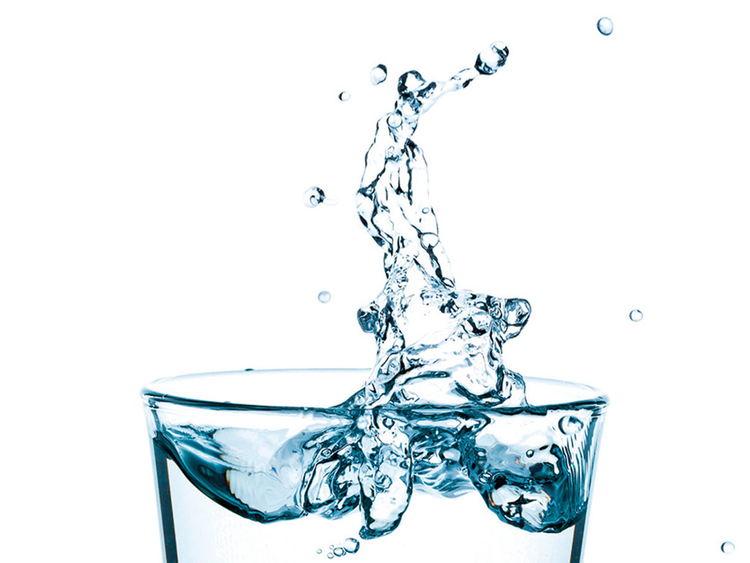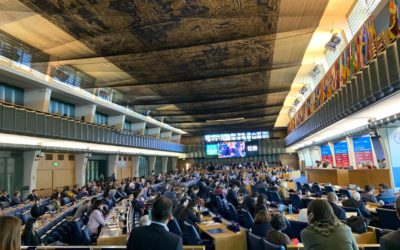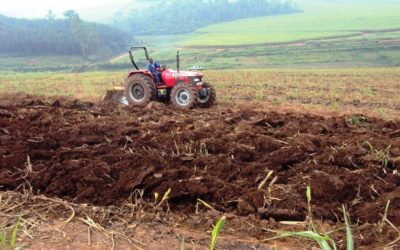The Shape of Water – an EFF study on potential drinking water solutions in Tanzania

A pressing issue that affects many communities in sub-Saharan Africa is the lack of potable or safe drinking water. Over two billion people around the world use contaminated water for drinking, and 40% of them are in sub-Saharan Africa. These nations rely heavily on agriculture for their sustenance as well as for employment. However, when waterborne diseases are prevalent, poor access to clean water has direct economic, social, or environmental consequences. The general health of the working population is affected, children under five are vulnerable and risk dying, and the healthcare system is put under stress.
EFF’s mission is to alleviate poverty in agricultural communities, and part of this involves improving their health and sanitation. When a community does not have safe and clean water to drink, it becomes a public health concern and has socio-economic repercussions. This is why we leaped at the opportunity to work with the Shikoku Chemicals Corporation (SCC) in their African venture. SCC was the first company in Japan to produce chlorinated isocyanurates, a compound that can sanitise water for a wide range of applications, including disinfecting drinking water.
SCC successfully launched Neo-Aqure water purification sachets across India in January 2020. The purifying granules are easy to use and are effective – they are simply mixed with 20 litres of water to purify and render it drinkable within a minute. In February 2020, SCC approached EFF to conduct a business viability study in the Tanzanian market. We were more than ready for this challenge. For one thing, the Foundation has been implementing development initiatives in agricultural communities in Eastern and Southern Africa since 2013, building extensive working relationships with smallholder farmers and their communities. With our links to ETG, a global agricultural supply chain manager and one of Africa’s largest agricultural conglomerates, we had the expertise and wide reaching network needed to test the marketability of Neo-Aqure.
In partnership with SCC, EFF conducted a comprehensive study on the issue of access to potable water amongst communities in Tanzania and on finding potential solutions. The study started in September 2020, took over four months to complete, and involved close to 1,700 participants from across the country – namely from the Mbeya, Mtwara, Ruvuma, Pwani, Tanga, Arusha, Manyara, Kagera, Kigoma, and Mara Regions. The average age of respondents was 35, with the youngest being 13 and the oldest 83. Just over half were women. A total of 10,000 sachets ofNeo-Aqure were distributed, equating to 200,000 litres of purified water Our study showed that this product could be an economically viable and environmentally sustainable method of providing access to clean drinking water. More importantly, we found that there was a keen interest to use this water treatment method. Participants even asked if distribution could be accelerated to their local shops.
The reasons for the positive response to the product was because the respondents, and the communities they live in, do not have many better alternatives. They either have to purchase bottled water or boil water they collect from boreholes or other sources. Buying bottled water for daily consumption can be prohibitively expensive and is 26 times more expensive than the cost of Neo-Aqure. The cost of boiling water can be measured by the amount of fuel it consumes and the time it takes. Boiling by using gas, firewood, and charcoal is 5x, 3x, and 9x more expensive, respectively, than the sachets, and can take upwards of half an hour for 20 litres of water. The current equivalent of this product in the Tanzania markets is Water Guard, which takes about 30 minutes to take effect. Even after these 30 minutes, Water Guard consumers say that the water has a distinct taste that they do not like.
Not having safe, potable water can have devastating effects on an individual. One of the more disheartening revelations from our study was this: when participants were asked if they were often, sometimes or never sick from waterborne diseases, 76% say that they were sometimes, and 12% of the respondents stated that they were often ill. In fact, an estimated 484,000 die every year from diarrhoeal illnesses. Those are 484,000 preventable deaths. Medical bills for people who are ill from diseases linked to contaminated water such as cholera, typhoid fever, hepatitis A, and others, especially infants and children, can be high enough to land a person in debt. And when a person or their family member is ill, they are unable to work, a circumstance that perpetuates the cycle of poverty.
Statistics like that show us really how long the road ahead is. But I strongly believe that we can overcome this issue of water. Over the course of this study, we learned about the great work that has been happening in the field of water, sanitation and hygiene (WASH). Water purification sachets such as the ones we tested have proven to be one such viable solution in tackling the lack of access to potable water in the communities we work in.
Continue Reading
Mozambique pledges to fight poverty through agriculture
I was honoured to be a part of the inauguration ceremony of His Excellency Filipe Jacinto Nyusi, President of the Republic of Mozambique, on 15th January in Maputo. What brought a big smile to my face and touched me personally, was the significance he divested in agriculture.
Being part of the discussion: exchanging knowledge and inputs in the international sphere
Over the last few months, my team at the ETG Farmers Foundation (EFF) has actively participated in various regional and international forums centered on agriculture, sustainable development and trade.
Banishing the hand-hoe in favour of tractor-preneurs
ETC Agro Tractors and Implements Ltd. has been involved in a project that is improving access to farm mechanisation for smallholder farmers while boosting rural entrepreneurship across Tanzania.




0 Comments